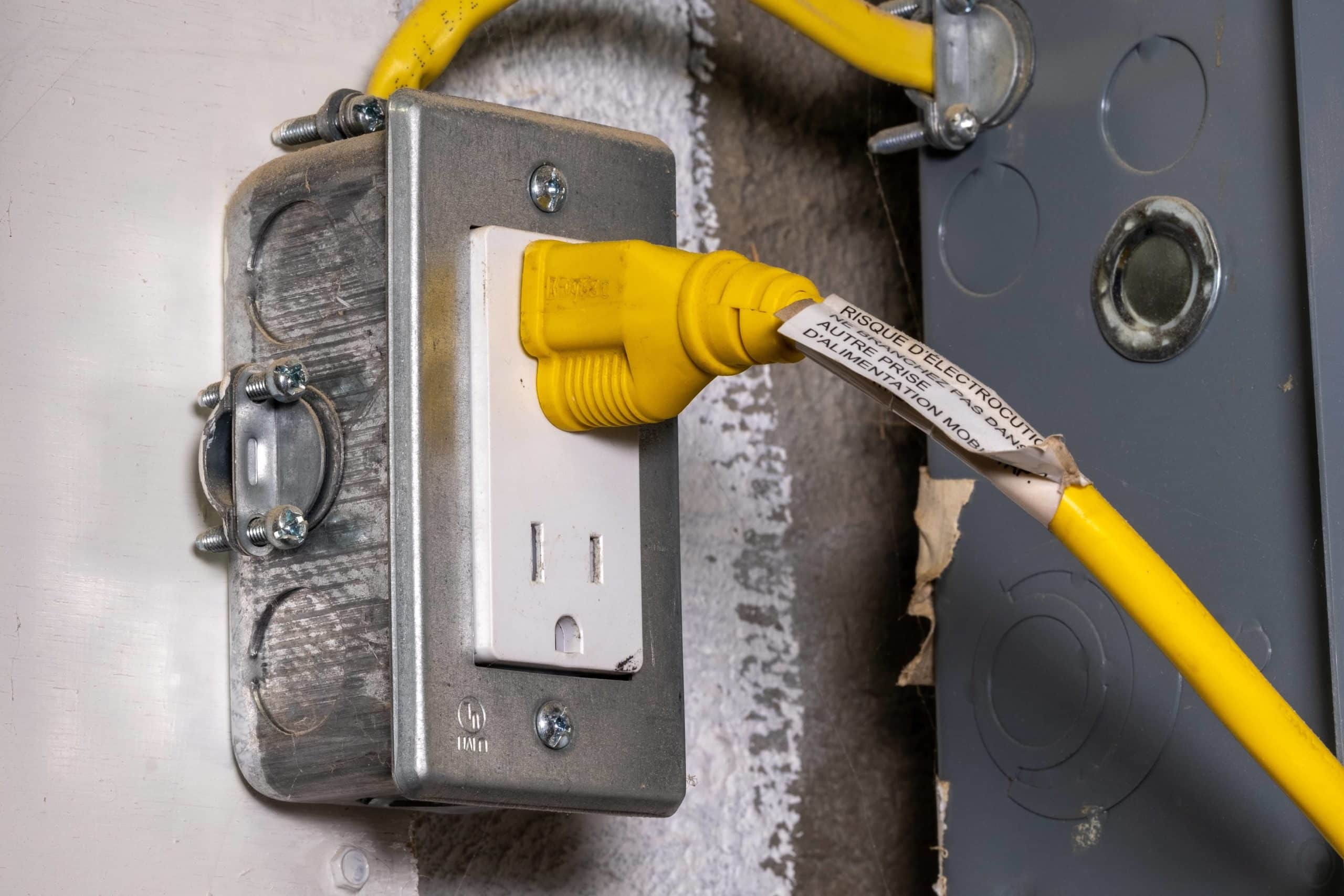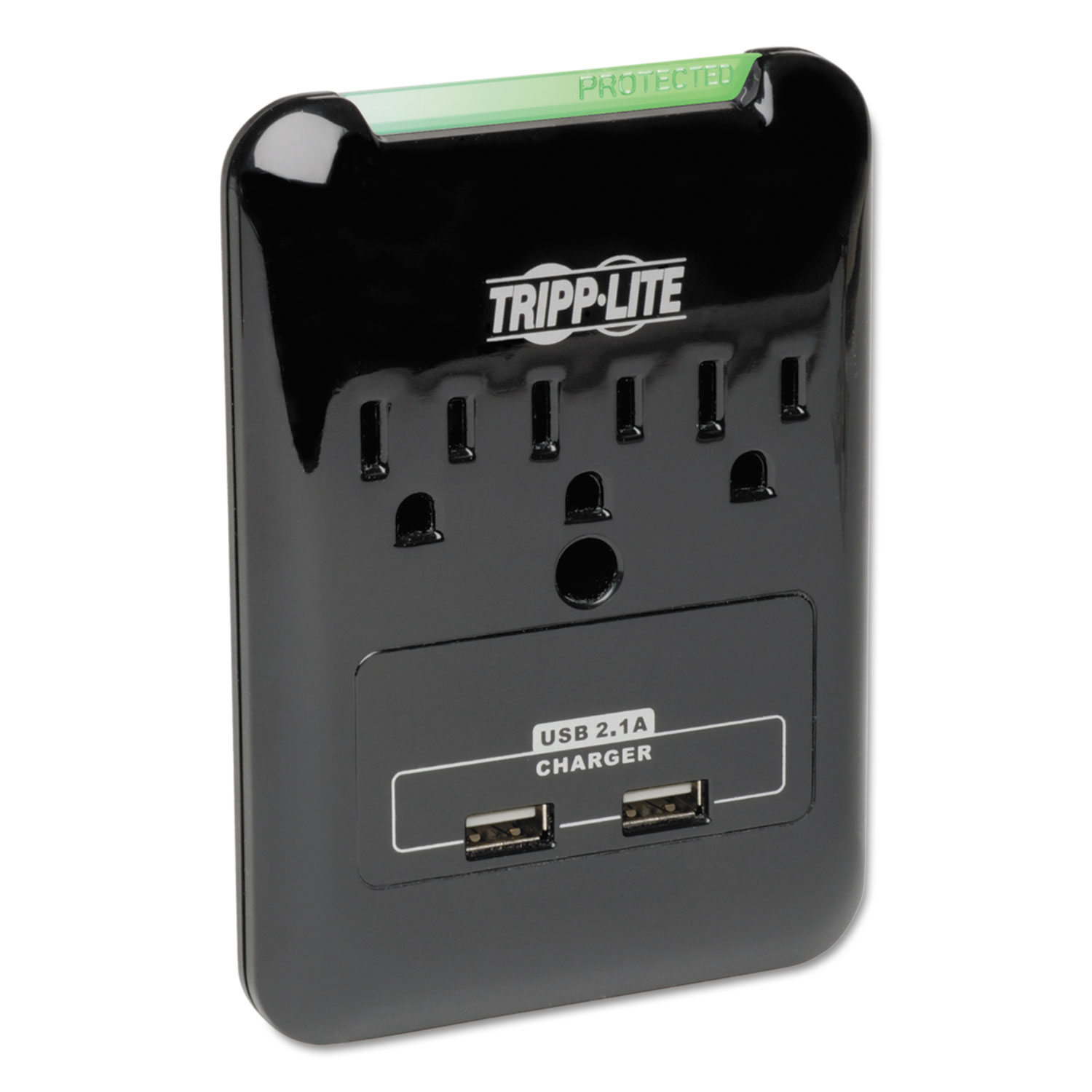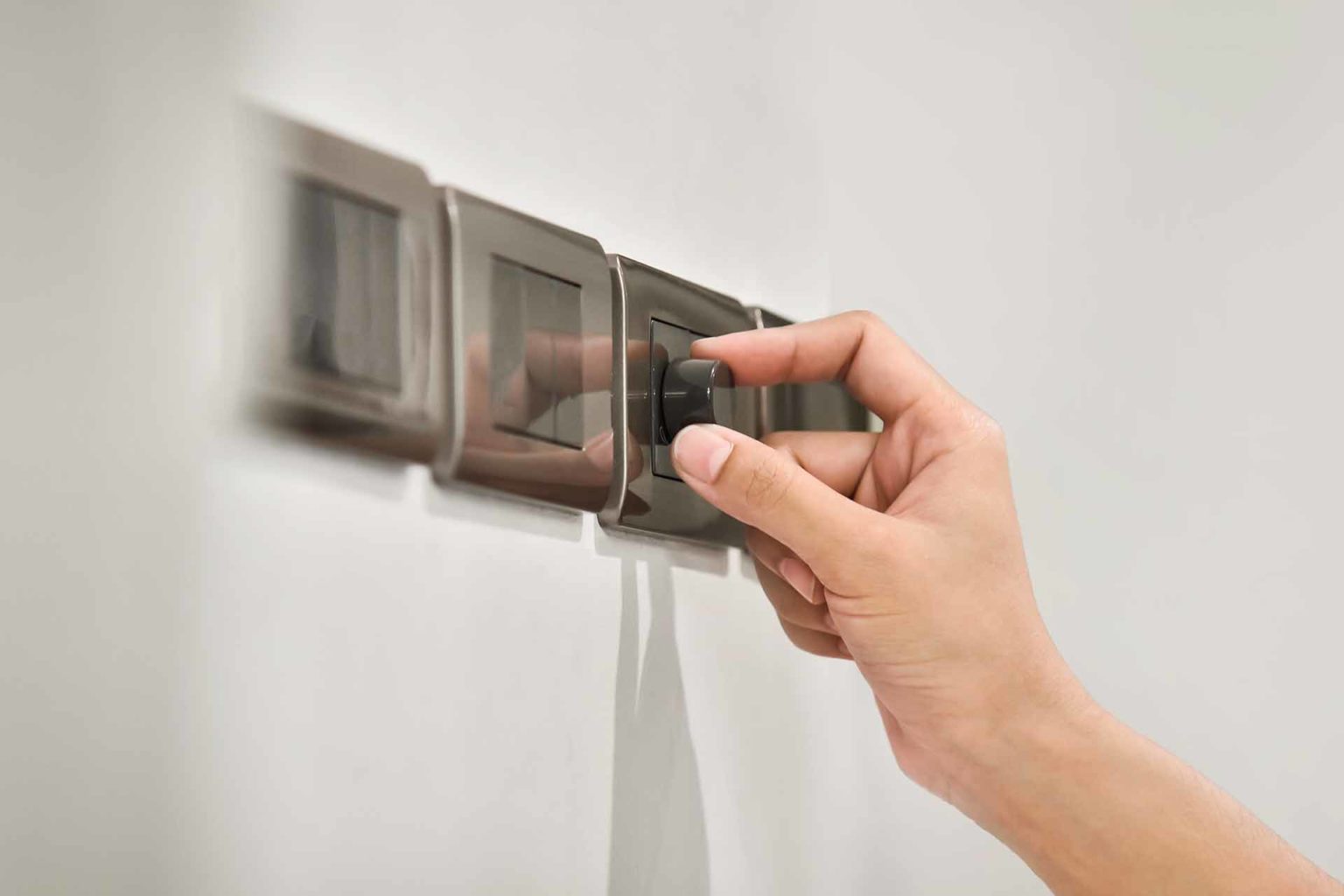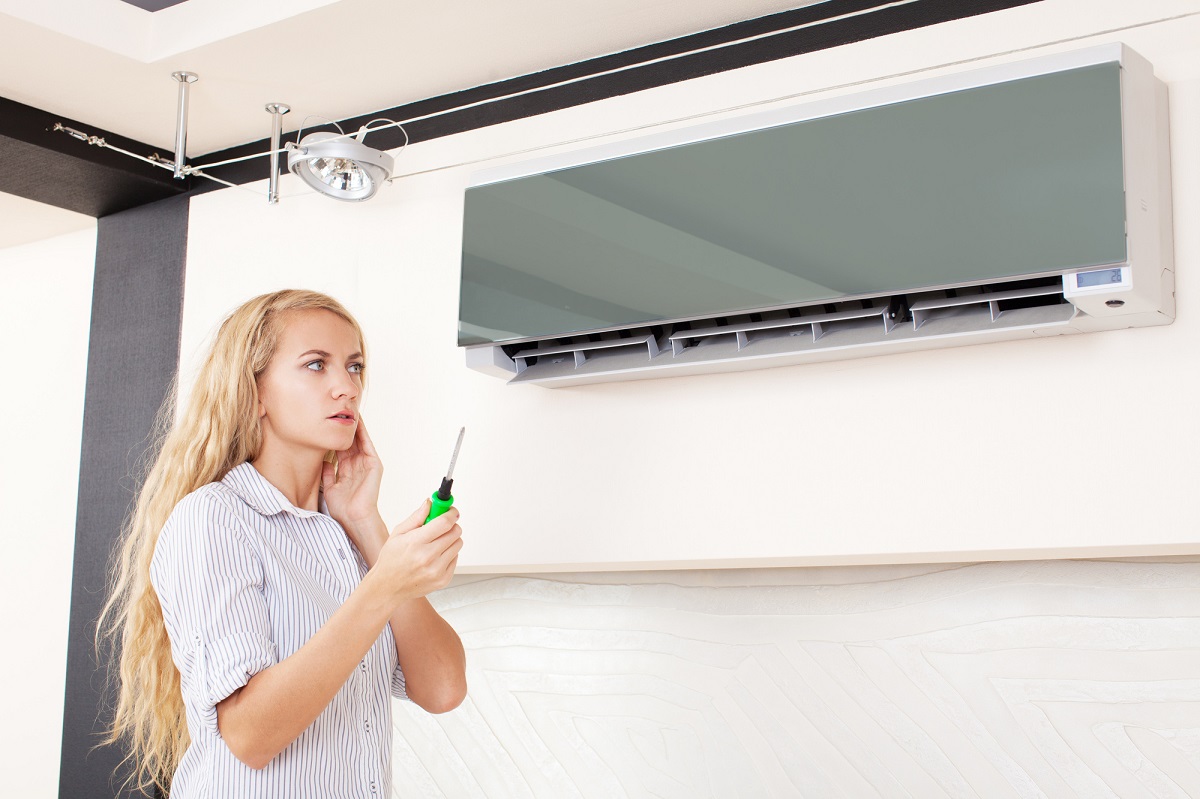

Articles
Why Does My Electrical Box Buzz
Modified: January 6, 2024
Discover the reasons behind your electrical box buzz with our insightful articles. Explore expert advice and troubleshooting tips for a noise-free electrical system.
(Many of the links in this article redirect to a specific reviewed product. Your purchase of these products through affiliate links helps to generate commission for Storables.com, at no extra cost. Learn more)
Introduction
Have you ever noticed a strange buzzing sound coming from your electrical box? It can be quite disconcerting, not to mention puzzling. After all, your electrical panel is supposed to operate silently, ensuring the smooth functioning of your home’s electrical system. So, why is it buzzing? In this article, we will explore the various reasons behind the buzzing in electrical boxes and address any concerns you may have about its safety.
The electrical box, also known as the electrical panel or breaker box, is the central hub that manages the distribution of electricity throughout your home. It contains circuit breakers that control the flow of power to different areas and devices within your house. When everything is functioning properly, the electrical box operates efficiently and quietly. However, when you hear buzzing noises emanating from it, it is a clear indication that something is amiss.
It is important to understand that the buzzing sound itself is not necessarily a cause for immediate alarm. In some cases, it may be a simple issue that can be easily resolved. However, in other instances, it could indicate a more serious electrical problem that requires prompt attention from a professional electrician. The key is to be aware of the potential causes and take appropriate action when necessary.
Throughout this article, we will delve into the different reasons why your electrical box may be buzzing. We will explore issues such as loose wiring connections, faulty circuit breakers, overloaded circuits, grounding problems, and the aging of electrical panels. By understanding these factors, you will be better equipped to address the buzzing sound and ensure the safety of your electrical system.
Key Takeaways:
- Electrical box buzzing can stem from loose wiring, faulty breakers, overloaded circuits, grounding issues, or panel aging. Prompt professional attention is crucial to prevent potential hazards and ensure a safe electrical system.
- Troubleshooting buzzing sounds in the electrical box involves careful inspection, addressing loose connections, checking for damage, and considering a panel upgrade if necessary. Safety is paramount, so consulting a licensed electrician is recommended for expert guidance.
Read more: Why Does My Ceiling Light Buzz?
Reasons for Electrical Box Buzzing
There can be several reasons why your electrical box is buzzing. Let’s explore some of the common culprits:
- Loose wiring connections: Over time, the electrical connections in your panel can become loose due to thermal expansion and contraction. These loose connections can create resistance and lead to buzzing sounds. It is essential to have a professional electrician inspect and tighten any loose connections to prevent further issues.
- Faulty circuit breaker: A faulty or damaged circuit breaker can also cause buzzing in the electrical box. When a circuit breaker is not functioning correctly, it may struggle to handle the electrical load, resulting in vibrations and buzzing noises. In such cases, the circuit breaker may need to be replaced to resolve the issue.
- Overloaded circuit: If you have too many appliances or devices drawing power from a single circuit, it can overload the system. This overload can put stress on the electrical box and circuit breakers, causing them to vibrate and create buzzing sounds. To alleviate this issue, consider redistributing your electrical loads or installing additional circuits to balance the power distribution.
- Grounding issues: Proper grounding is crucial for the safe functioning of an electrical system. When the grounding is faulty, it can lead to buzzing noises in the electrical box. This could be due to a variety of factors, such as loose ground wires or improper grounding techniques. A licensed electrician should be consulted to inspect and rectify any grounding issues to ensure the safety of your home.
- Electrical panel aging: Electrical panels, like any other component, can deteriorate over time. As panels age, their components may begin to wear out or become less efficient, leading to buzzing sounds. This may be an indication that it is time to consider upgrading your electrical panel to a newer and more reliable model. An electrician can assess the condition of your panel and recommend the best course of action.
It is important to remember that any buzzing sound coming from your electrical box should not be ignored. While some issues may be minor and easily rectified, others can pose serious risks such as electrical fires or electrocution. If you are uncertain about the cause of the buzzing or feel uncomfortable attempting to resolve it yourself, it is always advisable to seek professional help. A licensed electrician can diagnose and address the underlying issue in a safe and efficient manner.
Loose Wiring Connections
One of the primary reasons for buzzing in an electrical box is loose wiring connections. Over time, the vibrations and thermal expansion and contraction that occur in the panel can cause the connections to become loose. When the wires are not securely fastened, they can create electrical resistance, leading to buzzing sounds. Loose wiring connections can occur for several reasons:
- Aging components: As the electrical panel ages, the screws and connections holding the wires in place can loosen. This is especially true if the panel hasn’t been inspected or maintained regularly.
- Improper installation: If the electrical panel was not installed correctly initially, it can lead to loose wiring connections. It is crucial to hire a professional electrician who follows the appropriate installation and connection procedures.
- Environmental factors: Extreme temperature changes, moisture, or exposure to corrosive elements can impact the integrity of the wiring connections over time.
- Over-tightened connections: Ironically, over-tightening wiring connections can sometimes cause them to become loose. It’s important to strike the right balance when tightening the screws to ensure a secure connection without damaging the wires.
Loose wiring connections can lead to more significant issues if not addressed promptly. The resistance caused by the loose connections can create heat, increasing the risk of electrical fires. Additionally, the constant buzzing sound itself can be irritating and disruptive to your daily life. To troubleshoot and resolve loose wiring connections:
- Turn off the power: Start by turning off the main power to the electrical panel. This will ensure your safety while you work on the connections.
- Inspect the connections: Carefully examine the connections in the electrical panel, ensuring that all wires are securely fastened. Look for any signs of looseness, corrosion, or damage.
- Tighten the connections: Using a screwdriver or an appropriate tool, tighten the screws holding the wires in place. Be cautious not to over-tighten, as this can also cause issues.
- Seek professional help: If you are unsure or uncomfortable working with electrical connections, it is best to hire a licensed electrician. They have the knowledge and expertise to handle the task safely and effectively.
Regular inspection and maintenance of your electrical panel is essential in preventing loose wiring connections. By addressing the issue promptly, you can ensure the safe and efficient operation of your electrical system.
Faulty Circuit Breaker
A faulty circuit breaker can be another common cause of buzzing in an electrical box. Circuit breakers are designed to protect electrical circuits from overloading or short circuits by automatically interrupting the flow of electricity. When a circuit breaker is faulty or damaged, it may struggle to handle the electrical load, leading to vibrations and buzzing noises. There are a few reasons why a circuit breaker can become faulty:
- Overheating: Over time, circuit breakers can overheat due to excessive electrical current passing through them or due to poor ventilation around the breaker. This heat can cause the internal components of the breaker to malfunction, resulting in buzzing sounds.
- Age and wear: Like any electrical component, circuit breakers have a lifespan. Over time, the internal mechanisms of the breaker can wear out, leading to issues such as loose connections or weakened internal springs. These issues can cause the breaker to vibrate and produce buzzing sounds.
- Physical damage: Accidental impact or exposure to extreme conditions can cause physical damage to the circuit breaker. This damage can disrupt the proper functioning of the breaker and result in buzzing noises.
If you suspect that a faulty circuit breaker is causing the buzzing in your electrical box, it’s important to take appropriate action:
- Identify the faulty breaker: Start by pinpointing the specific breaker that is causing the issue. Turn off the main power to your electrical panel and listen carefully to determine which breaker is producing the buzzing sound.
- Inspect for visible damage: Examine the circuit breaker for any visible signs of damage, such as a scorched appearance, loose wires, or a tripped lever. If you notice any such signs, it is likely that the breaker needs to be replaced.
- Reset the breaker: In some cases, a trip or “half-trip” can cause the breaker to vibrate and produce buzzing noises. Try resetting the breaker by flipping it to the “off” position and then back to the “on” position. If the buzzing persists after resetting, it may indicate a deeper issue with the breaker.
- Call a professional: Dealing with faulty circuit breakers can be dangerous, especially if you are not familiar with electrical systems. It is recommended to contact a licensed electrician to diagnose and resolve the issue. A professional will have the necessary expertise and knowledge to safely replace the faulty circuit breaker.
Regular maintenance and inspections of your electrical panel can help identify and address faulty circuit breakers before they cause buzzing or more serious problems. Remember, working with electricity can be hazardous, so it’s always best to leave complex electrical tasks to the professionals.
Overloaded Circuit
An overloaded circuit is a common culprit behind the buzzing sound in your electrical box. It occurs when there are too many electrical devices or appliances drawing power from a single circuit, exceeding its intended capacity. This overloading can put stress on the electrical box and circuit breakers, leading to vibrations and buzzing noises. Here’s what you need to know about overloaded circuits:
- Power demands: Every electrical circuit has a maximum power load it can handle, measured in amps. If the total power demand from the devices connected to a circuit exceeds its capacity, it can overload the circuit, causing buzzing sounds.
- Outdated wiring: Older homes might have outdated electrical wiring that can’t handle the power demands of modern appliances. In such cases, existing circuits may need to be upgraded to accommodate the increased load.
- Extension cords and power strips: Overloading can also occur when multiple devices are plugged into the same extension cord or power strip. These accessories have their own power limits, and exceeding them can lead to buzzing sounds and potential hazards.
If you suspect that an overloaded circuit is the cause of the buzzing in your electrical box, follow these steps to address the issue:
- Identify the overloaded circuit: Determine which circuit is responsible for the buzzing sound by turning off the power to each circuit one at a time and listening for the buzzing noise to stop.
- Redistribute the electrical load: Once you’ve identified the overloaded circuit, unplug or turn off some of the devices or appliances connected to that circuit. Distribute the load across multiple circuits to avoid overloading any single one.
- Add additional circuits: If you consistently experience overloaded circuits, it may be necessary to install additional circuits in your electrical panel. This will allow you to distribute the power load more effectively and prevent future overloading issues.
- Seek professional assistance: If you are unsure about the capacity of your circuits or need help redistributing electrical loads, consult a licensed electrician. They will assess your electrical panel and make the necessary recommendations or upgrades to ensure safe and efficient operation.
Preventing overloaded circuits is crucial to maintaining the safety and functionality of your electrical system. By understanding the power requirements of your appliances and ensuring proper distribution of power, you can avoid overloading issues and minimize the risks associated with buzzing electrical boxes.
If your electrical box is buzzing, it could be a sign of loose wiring or an overloaded circuit. It’s important to have a licensed electrician inspect and address the issue to prevent potential hazards.
Read more: Why Does My Induction Cooktop Buzz
Grounding Issues
Grounding issues can be another reason for the buzzing sound in your electrical box. Grounding is a crucial safety measure that ensures any excess electrical current is safely redirected into the ground. When there are problems with the grounding system, it can cause buzzing noises and potentially hazardous situations. Here are a few common grounding issues:
- Loose or disconnected ground wires: Ground wires are essential for safely diverting excess electricity. If these wires become loose, corroded, or disconnected, it can result in a compromised grounding system and buzzing in the electrical box.
- Improper grounding techniques: Faulty installation or incorrect grounding techniques can also lead to grounding issues. It is vital to ensure that the grounding system follows industry standards and is properly installed by a qualified electrician.
- Multiple grounding paths: Having multiple grounding paths in your electrical system can create a phenomenon called “ground loops.” This occurs when there are multiple paths for the electrical current to reach the grounding system, resulting in buzzing sounds and potential electrical interference.
If you suspect that grounding issues are causing the buzzing in your electrical box, here are some steps to troubleshoot and resolve the problem:
- Turn off the power: As a safety precaution, switch off the power to your electrical panel before addressing any grounding concerns.
- Inspect the ground wires: Carefully examine the ground wires connected to your electrical panel. Verify that they are securely fastened, free from corrosion, and properly connected to grounding points.
- Clean and tighten connections: If you notice any loose or corroded connections, clean them thoroughly and tighten them properly. Use appropriate tools and be gentle to avoid damaging the wires or terminals.
- Ensure proper grounding techniques: If you suspect improper grounding techniques, it is best to consult a licensed electrician. They will have the expertise to evaluate and rectify any grounding issues to ensure the safety of your electrical system.
- Address ground loops: If you suspect ground loops due to multiple grounding paths, consider consulting an electrician to identify and eliminate any unnecessary or redundant grounding connections.
Ensuring a proper grounding system is essential for the safety of your electrical system and the prevention of electrical hazards. By addressing grounding issues, you can eliminate buzzing sounds and maintain the optimal performance of your electrical box.
Electrical Panel Aging
As with any other component, electrical panels can age and deteriorate over time. The aging process can lead to various issues, including buzzing sounds in the electrical box. Here’s what you need to know about electrical panel aging:
- Component wear and tear: Over the years, the internal components of the electrical panel can wear out or become less efficient. This can lead to buzzing noises as the components struggle to function properly.
- Corroded connections: Corrosion can occur on the wires and connections inside the electrical panel due to environmental factors or poor maintenance. Corroded connections can introduce resistance, resulting in buzzing sounds.
- Outdated technology: Older electrical panels may not be equipped with the latest technologies designed to reduce electrical noise and vibrations. This can contribute to buzzing sounds as the panel ages.
If you suspect that the aging of your electrical panel is causing the buzzing sound, consider the following steps to address the issue:
- Consult a professional: It’s always recommended to seek the expertise of a licensed electrician when dealing with aging electrical panels. They can inspect the panel, assess its condition, and provide appropriate recommendations.
- Upgrade the electrical panel: If your panel is outdated or experiencing significant issues, an upgrade may be necessary. Upgrading to a newer and more efficient panel can not only eliminate buzzing sounds but also improve the overall safety and performance of your electrical system.
- Regular maintenance: To extend the life of your electrical panel, schedule regular maintenance checks with a professional electrician. They can clean the panel, identify any potential issues, and address them before they escalate.
Keep in mind that electrical work can be hazardous, and attempting to address aging electrical panels without proper knowledge and experience can lead to accidents or further damage. It is always best to rely on the expertise of qualified professionals to ensure the safety and reliability of your electrical system.
Electrical Box Buzzing: Is it Dangerous?
When you hear a buzzing sound coming from your electrical box, it is natural to wonder if it is a cause for concern. While every situation is unique, it’s important to understand that electrical box buzzing can potentially indicate underlying problems that require attention. Here’s what you need to consider:
- Safety hazards: In some cases, buzzing sounds can be a warning sign of electrical hazards, such as loose connections, faulty circuit breakers, or grounding issues. These issues can increase the risk of electrical fires, electrical shocks, or damage to your electrical devices.
- Overheating: Buzzing sounds can also be an indication of overheating electrical components. Overheating can lead to equipment failure, melted wires, and potentially dangerous situations. Ignoring the buzzing sound can allow the problem to escalate and cause more significant damage.
- Electrical interference: In addition to safety concerns, buzzing sounds can be irritating and disruptive to your daily life. It can interfere with electronics, communication devices, and even sleep quality, impacting your overall comfort and well-being.
While not all buzzing sounds indicate immediate danger, it is crucial not to ignore them. Taking a proactive approach to address the issue can help prevent potential hazards and ensure the long-term performance and safety of your electrical system.
When dealing with buzzing in your electrical box, consider the following steps:
- Do not attempt DIY repairs if you are unsure about electrical systems. Working with electricity without the necessary knowledge and experience can lead to accidents or further damage.
- Turn off the power to your electrical panel if you notice persistent buzzing sounds. This will prevent any potential hazards and give you time to assess the situation.
- Contact a licensed electrician to diagnose and resolve the issue. They have the expertise and equipment to identify the cause of the buzzing and safely address any electrical problems.
- Schedule regular inspections and maintenance of your electrical system to prevent future buzzing issues. Regular maintenance can help detect and rectify small problems before they develop into more significant and potentially dangerous situations.
By taking a proactive approach to address buzzing in your electrical box, you can ensure the safety and functionality of your electrical system, providing you with peace of mind and a secure living environment.
Troubleshooting Electrical Box Buzzing
If you’re experiencing buzzing sounds in your electrical box, it’s important to troubleshoot the issue to identify the underlying cause. While some causes may require professional assistance, there are steps you can take to troubleshoot the problem. Keep in mind that your safety is paramount, and if you’re unsure or uncomfortable with any step, it’s best to contact a licensed electrician. Here’s how you can troubleshoot electrical box buzzing:
- Listen for buzzing: Pay attention to the buzzing sound and try to locate its source. Determine if the sound is coming from the electrical box itself or from a specific circuit within the panel.
- Check for loose connections: Turn off the power to your electrical panel, and carefully inspect the connections for any signs of looseness. Ensure all wires and screws are properly tightened.
- Look for signs of damage: Examine the circuit breakers and other components in the electrical box for any visible signs of damage, such as burnt marks, frayed wires, or discolored areas. These signs may indicate a more severe issue that requires professional attention.
- Reset tripped breakers: If a circuit breaker has tripped, it may cause buzzing sounds. Reset the tripped breaker by switching it to the “off” position and then back to the “on” position. If the breaker trips again or the buzzing persists, avoid resetting it and seek professional help.
- Ensure proper ventilation: Inadequate ventilation around the electrical panel can cause overheating, which may lead to buzzing. Make sure the area around the electrical box is clear and well-ventilated.
- Check for overloaded circuits: Assess if any circuit is handling too much electrical load. Unplug or turn off some devices to redistribute the load and prevent overloading the circuit.
- Inspect grounding: Examine the grounding wires and connections to ensure they are properly installed and not corroded. Grounding issues can contribute to buzzing sounds.
- Consider panel upgrade: If your electrical panel is old or outdated, it may be a potential cause for the buzzing. Upgrading to a newer model with advanced features can improve safety and prevent future buzzing issues.
It’s important to note that troubleshooting electrical issues can be complex and potentially dangerous, especially if you lack experience. If the buzzing sound persists or you’re unsure about any steps, contact a licensed electrician to assess the situation and provide expert guidance. They will have the knowledge and tools to diagnose and address the underlying cause of the buzzing sound in your electrical box, ensuring your safety and the continued functionality of your electrical system.
Read more: Why Is My Lamp Buzzing
Conclusion
Experiencing buzzing sounds in your electrical box can be concerning, but it’s important to address the issue promptly and effectively. Throughout this article, we have explored the various reasons why your electrical box may be buzzing, including loose wiring connections, faulty circuit breakers, overloaded circuits, grounding issues, and the aging of electrical panels.
While some buzzing sounds may be harmless and easily resolved, others can indicate more significant electrical problems that require professional attention. It is crucial to prioritize safety and consult a licensed electrician if you are unsure or uncomfortable with any aspect of troubleshooting or resolving the issue.
Regular maintenance, inspections, and upgrades are key to ensuring the safety and efficiency of your electrical system. Understanding the potential causes of buzzing in your electrical box empowers you to take appropriate action and prevent any further issues or risks.
Remember, electrical work can be dangerous, so it’s always best to rely on the expertise and services of qualified professionals. By doing so, you can have peace of mind knowing that your electrical system is in good hands.
If you’re experiencing buzzing sounds or any other electrical concerns, don’t hesitate to reach out to a licensed electrician. They have the knowledge, experience, and tools to diagnose and resolve the issue accurately and safely.
By staying proactive and addressing buzzing sounds in your electrical box, you can ensure the longevity, safety, and reliable performance of your electrical system, providing you with peace of mind and a comfortable living environment.
Frequently Asked Questions about Why Does My Electrical Box Buzz
Was this page helpful?
At Storables.com, we guarantee accurate and reliable information. Our content, validated by Expert Board Contributors, is crafted following stringent Editorial Policies. We're committed to providing you with well-researched, expert-backed insights for all your informational needs.














0 thoughts on “Why Does My Electrical Box Buzz”